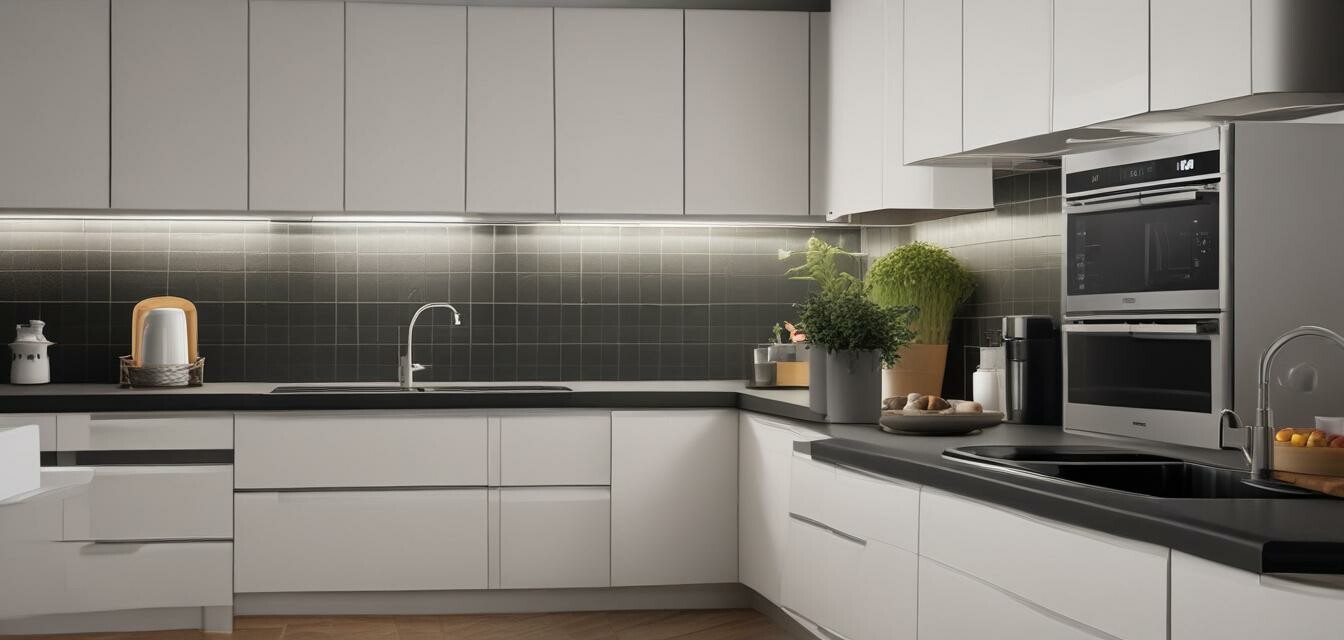
The impact of smart assistants on kitchen efficiency
Key Takeaways
- Smart assistants simplify kitchen tasks through voice commands and integrated technology.
- They enhance efficiency, helping to save time and reduce food waste.
- Integration with smart appliances increases functionality and convenience.
- Before purchasing, consider compatibility with existing devices and ecosystems.
- Explore the latest trends in kitchen appliances for a streamlined kitchen experience.
In today's fast-paced world, where time is of the essence, kitchen efficiency has become more important than ever. The introduction of smart assistants has revolutionized the way we cook and manage our kitchens. In this article, we will explore how these innovative technologies are streamlining tasks and enhancing efficiency.
What are smart assistants?
Smart assistants are AI-driven technologies designed to assist users through voice commands and automated processes. Examples include devices like voice-activated speakers, smart displays, and integrated apps that connect with kitchen appliances. These systems are capable of performing a multitude of functions, making them essential tools in modern kitchens.
Benefits of smart assistants in the kitchen
| Benefit | Description |
|---|---|
| Hands-Free Operation | Smart assistants allow users to perform various tasks without needing to touch their devices, which is especially helpful when hands are full. |
| Recipe Assistance | Users can ask for recipes and receive step-by-step guidance, which makes cooking more enjoyable and less stressful. |
| Timer and Reminder Functions | Smart assistants can set timers and reminders for cooking durations, making it easier to manage multiple dishes. |
| Integration with Smart Appliances | They can communicate with smart ovens, refrigerators, and other appliances to manage settings and monitor cooking processes. |
Enhancing kitchen efficiency
Smart assistants are not just about convenience; they significantly enhance kitchen efficiency by optimizing various tasks. Here are a few ways they contribute:
- Streamlined grocery lists: Users can easily create and manage grocery lists through voice commands, reducing the chances of forgetting essential items.
- Meal planning: Smart assistants can suggest meal plans based on user preferences, dietary restrictions, and available ingredients.
- Reduce food waste: With better tracking of ingredients and expiration dates, users can reduce food waste significantly.
- Cooking assistance: They can adjust cooking times and temperatures on compatible devices based on the recipe being prepared.
Integration with other kitchen technologies
When paired with other smart kitchen technologies, the potential of smart assistants expands. Here’s how:
| Technology | Integration with Smart Assistants |
|---|---|
| Smart Refrigerators | Track inventory and suggest recipes based on available ingredients. |
| Smart Ovens | Control preheating and temperature settings hands-free using voice commands. |
| Touchless Faucets | Activate water flow without touching the faucet, promoting hygiene and efficiency. |
Choosing the right smart assistant for your kitchen
When selecting a smart assistant, consider factors such as:
- Compatibility with existing devices and appliances in your kitchen.
- Voice recognition accuracy, especially in noisy environments.
- Smart home ecosystem integration (e.g., Google Home, Amazon Alexa).
- Privacy and security considerations regarding voice data.
Staying updated with kitchen appliance trends
The kitchen appliance landscape is continually evolving, influenced by innovations in technology. For a deep dive into the latest trends, including the rise of smart ovens and buying guides for high-tech appliances, explore our dedicated sections.
Pros
- Increased convenience and accessibility in kitchen tasks.
- Enhanced cooking efficiency with improved multitasking.
- Integration capabilities with a wide range of kitchen devices.
- Support for dietary management and meal planning.
Cons
- Initial setup can be cumbersome for tech novices.
- Privacy concerns related to voice-activated devices.
- Dependent on internet connectivity for full functionality.
Conclusion
Smart assistants are undeniably transforming kitchen efficiency through their ability to streamline operations and assist with a variety of culinary tasks. As technology continues to advance, these devices will play an even more significant role in enhancing our cooking experiences. Embrace the future of kitchen technology and consider integrating a smart assistant into your home for a smarter, more efficient kitchen.